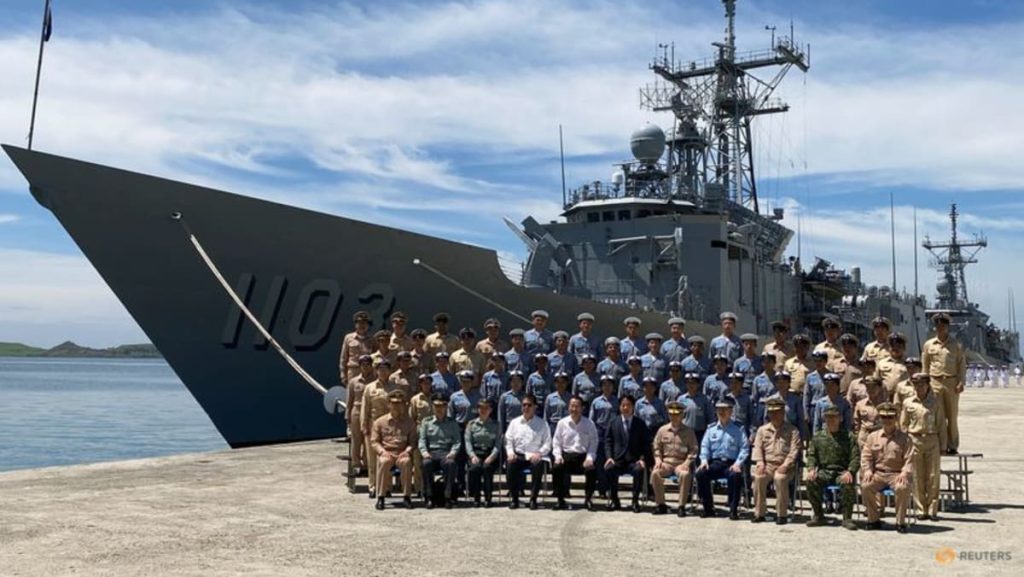The German navy recently made its first passage through the Taiwan Strait since 2002, joining other nations such as the United States and Canada in asserting freedom of navigation in the contested waterway. China claims sovereignty over Taiwan and asserts jurisdiction over the strait, despite Taiwan’s objections and its belief that the future of the island should be decided by its people. This narrow stretch of water is a crucial trade route for global container ships, with both the US and Taiwan arguing that it is an international waterway that should remain open to all.
Rear Admiral Axel Schulz, the commander of the German naval task group, emphasized that the passage through the Taiwan Strait was a demonstration of Germany’s commitment to a rules-based order and the peaceful resolution of territorial disputes. The two German vessels participating in the passage are also engaged in joint exercises in the region with several other countries, including France, Indonesia, Italy, Japan, Malaysia, Singapore, the Philippines, and the United States. These military activities are seen as a way for Germany to show solidarity with Western allies in response to China’s increasing territorial ambitions.
Despite Beijing’s regular condemnations of foreign warships sailing through the Taiwan Strait, Western nations like Germany have been ramping up their military presence in the region to counter China’s growing influence. Germany, which counts both China and Taiwan as significant trade partners, is aligning itself with other Western countries in challenging China’s claims in the region. By participating in joint exercises with allies and conducting freedom of navigation operations, Germany aims to uphold the principles of a rules-based international order and support the peaceful resolution of disputes in the region.
The passage of German warships through the Taiwan Strait reflects a broader trend of Western nations seeking to push back against China’s territorial assertions in the Indo-Pacific region. The involvement of Germany in joint military exercises with various countries in the area signals a unified front against Beijing’s attempts to dominate strategic waterways and territorial disputes. As China continues to expand its military presence and flex its muscles in the region, countries like Germany are increasingly prioritizing the importance of upholding international norms and ensuring freedom of navigation for all vessels in disputed waters.
The Taiwan Strait serves as a critical artery for global trade, with a significant percentage of container ships passing through its waters. Both the US and Taiwan argue that the strait should be recognized as an international waterway, open to all vessels regardless of territorial claims. By asserting its right to transit through the Taiwan Strait, Germany is joining a coalition of nations advocating for the preservation of freedom of navigation and the peaceful resolution of disputes in the region. This concerted effort to challenge China’s claims in the region underscores the growing importance of maintaining stability and security in one of the world’s most strategically significant waterways.
In conclusion, Germany’s passage through the Taiwan Strait signals a commitment to upholding the rules-based international order and defending freedom of navigation in disputed waters. By participating in joint exercises with allies and conducting military operations in the region, Germany is standing in solidarity with Western nations against China’s territorial ambitions. The involvement of German warships in the strait demonstrates a coordinated effort to push back against Beijing’s attempts to assert control over strategic waterways and territorial disputes in the Indo-Pacific. As tensions continue to rise in the region, Germany’s actions serve as a reminder of the importance of multilateral cooperation and adherence to established international norms to ensure peace and stability.













